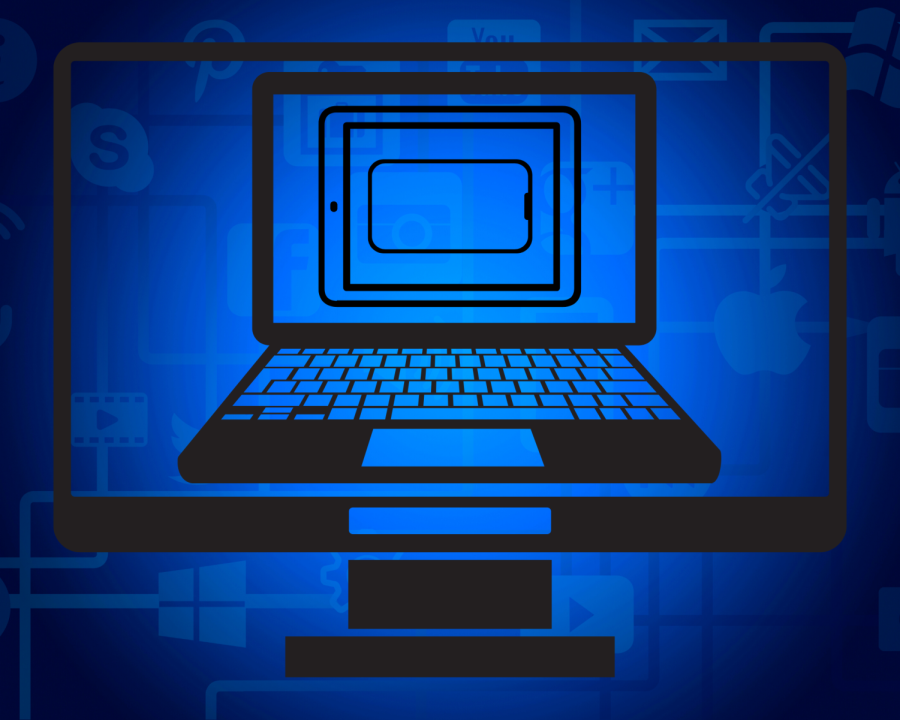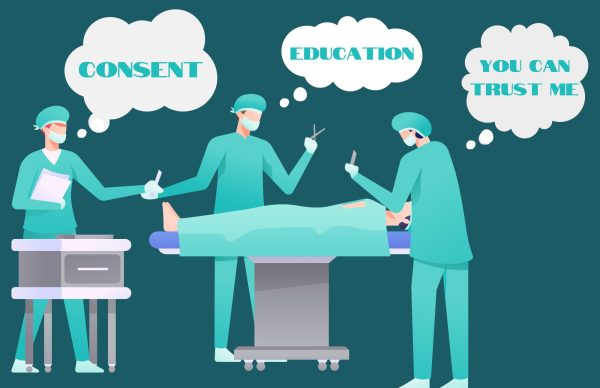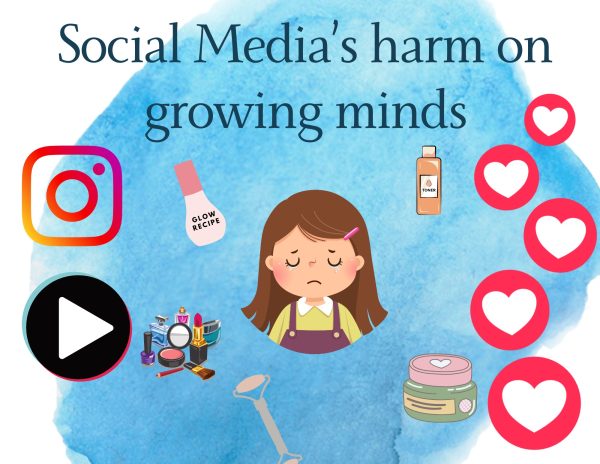Good or gluttonous? Teens and the Internet
It’s easy to become entranced by the vast expanse of the online world.
Time for some self-reflection on your use of the Internet and social media: Is scrolling through various social media feeds a part of your daily routine or more of an occasional activity? Do you mainly use the Internet for necessary tasks such as checking emails, work or academic purposes? Whatever your answer, you’ve probably had a multitude of experiences with content across the Internet – good, bad and ugly.
Like anything else, the Internet can be an enjoyable, pleasant pastime – in moderation. However, when left unmonitored, the harm caused by the Internet can far outweigh the benefits.
Stereotypically, teenagers are seen as defiant, unmotivated Internet addicts that can’t seem to last one second apart from their electronic devices. Though this image is often dramatized in media, the real rewards and consequences of excessive Internet and social media usage can be detrimental to the development and mental health of people of all ages, especially teenagers.
According to a survey updated in February 2020 by the American Association of Child and Adolescent Psychiatry, children spend around 4-6 hours daily on the Internet, while teens spend closer to 9 hours daily. Another 2018 study by Hopelab and Well Being Trust found that 93% of 14-22 year-olds have social media and 81% engage with it daily.
Stereotypically, teenagers are seen as defiant, unmotivated Internet addicts that can’t seem to last one second apart from their electronic devices.
These numbers are not surprising considering Gen. Z has grown up alongside the Internet. Most of us never knew a time when we weren’t able to call, message, or send social media posts to friends and family; but how do frequent Internet users draw the line between activity and addiction?
There are two main terms that are commonly used when approaching this question: problematic Internet Use (PIU) and Internet addiction. In summary, the National Library of Medicine explains that PIU occurs when users have primarily negative experiences on the Internet, while addiction refers to users who face negative consequences in their lives as a result of excessive Internet or media consumption.
Many teenagers are somewhat self-aware of their attachments to their devices. However, though quick validation and reassurance are what makes the Internet so appealing, this is not always bad. A prevalent example of online community is within stan culture and fandoms. Devoted fans of everything from famous musicians to TV shows to actors are able to connect with other fans around the world to discuss their shared interests. These groups often serve as an outlet for expressing interests that users may not be able to express within their IRL, or in real-life, relationships.
These groups often serve as an outlet for expressing interests that users may not be able to express within their IRL, or in real-life, relationships.
A 2015 study from the Pew Research Center found that 83% of teens feel closer to their friends due to social media and 64% have made friends through social media. That being said, the same report noted the pressure for perfection online. Out of the surveyed teens, 40% felt they should only post whatever will gain the most engagement, rather than what they actually want to.
So, what do we do with this information? All of these numbers support what we already know: the Internet is addictive. I’m not advising you to delete all of your social media and go off the grid, because that is next to impossible in the modern world. However, these statistics show the reality of the delicate balance between good and gluttonous in regard to continuous Internet activity.
Do some self-reflection on your relationship with the Internet. If necessary, take steps to cut back on your daily screen time and purposefully make time for other hobbies and interests. In the grand scheme of life, mental health and wellness are far more important than public appearance and fabricated content.














